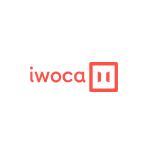| Name | Logo | Max Amount | Cost | GMG Rating | Customer Reviews | CTA | Feature | Expand |
|---|---|---|---|---|---|---|---|---|
|
Max Amount £20m |
Cost Broker Fee |
GMG Rating |
Customer Reviews 3.0
(Based on 1 reviews)
|
Regulation:
|
Funding Options Review: Smart Business Finance Matching for UK SMEsProvider: Funding Options Verdict: Funding Options (now “Funding Options by Tide”) is a UK-based finance broker / marketplace that helps small and medium-sized enterprises (SMEs) find business finance by matching them with lenders. It doesn’t itself provide the money; instead, it works with over 80 lenders so businesses can compare different types of funding (business loans, invoice finance, asset finance, commercial mortgages, etc.). It is backed by Tide, which is known for its SME-banking and business services. How does Funding Options work? To get a business loan from Funding Options the process begins with you telling them about your business and how much you need to borrow (and what for). There’s an online form, and providing this information lets their technology compare quotes from multiple lenders based on your business profile—turnover, credit, how long trading etc. Because you’re matched with many lenders, you can often see several possible offers rather than just one. There’s no obligation to accept, and checking eligible quotes doesn’t affect your credit score. Once you choose a lender, they guide you through the application process. Is Funding Options legit Yes, Funding Options is legitimate. It’s a registered company in England & Wales, is transparent about its role as a broker rather than direct lender, and is associated with Tide. It has good reputational markers: high Trustpilot ratings (about 4.8/5) with many customers commenting positively on how easy and helpful the service is. Is Funding Options safe Generally, yes. Because it doesn’t lend itself, there’s less risk of conflict of interest around funding terms from Funding Options itself. The transparency of having multiple lenders to compare, the ability to check options without a credit score hit, and decent customer feedback all suggest trustworthy practice. But as with any finance broker / lender match, safety depends on the lender you pick: fees, interest rates, and obligations like personal guarantees may vary and can carry risk. Always read the terms carefully before committing. Pros
Cons
Overall4.8 |
|||
|
Max Amount £500k |
Cost 49% APR |
GMG Rating |
Customer Reviews 0.0
(Based on 0 reviews)
|
Regulation:
|
iwoca Review: Fast and Flexible Business Loans for UK SMEs Provider: iwoca Verdict: iwoca is a UK-based financial technology company that specialises in providing fast, flexible business loans to small and medium-sized enterprises (SMEs). Founded in 2011 by Christoph Rieche and James Dear, it was created to address the funding gap faced by smaller businesses who often find traditional bank loans too slow, rigid, or inaccessible. Since launching, iwoca has lent billions of pounds to tens of thousands of UK businesses and has become one of the leading alternative lenders for SMEs. How does iwoca work? iwoca offers short and medium-term loans ranging from around £1,000 up to £1 million. Applications are made entirely online, and businesses can link their bank accounts via Open Banking to speed up credit checks. Once approved, funds can be released within hours, and borrowers can repay early without penalty. Repayment terms vary depending on the product, from a few months to several years, and once part of a loan has been repaid, customers may be eligible to top up their borrowing. Interest rates depend on the risk profile of the business, the size of the loan, and the term length, and while the cost can be higher than bank finance, the emphasis is on speed and flexibility. Is iwoca legit iwoca is a legitimate and well-established UK lender. It is authorised and regulated, operates under UK financial services rules, and has built a strong reputation over more than a decade. The company has funded thousands of businesses and has consistently high customer feedback ratings, including a Trustpilot score of around 4.8 out of 5 from tens of thousands of reviews. It has also received positive coverage from major financial publications and is considered one of the leading fintech lenders in the UK. Is iwoca safe? Borrowing from iwoca is generally safe provided you understand the commitments involved. It is regulated, uses secure systems for handling financial data, and has transparent loan terms with no hidden fees or penalties for early repayment. However, as with any form of borrowing, there are risks. Interest rates can be high for riskier businesses, and many loans require a personal guarantee from a company director, meaning personal assets could be at risk if the business cannot repay. iwoca loans are best suited for businesses with clear repayment plans and predictable cash flow who need quick access to finance. What does iwoca stand for? As far as we know the name “iwoca” does not appear to be an acronym. It is simply the brand chosen by the founders and does not officially stand for anything. The name has become associated with the company’s core values of innovation, speed, and flexibility in business lending. Pros
Cons
Overall4.3 |
|||
|
Max Amount £500k |
Cost From 6.9% |
GMG Rating |
Customer Reviews 3.0
(Based on 1 reviews)
|
Regulation:
|
Funding Circle Review: Fast Fixed-Rate Loans for UK SMEs Provider: Funding Circle Verdict: Funding Circle is a UK-based fintech business lender focused on providing finance to small and medium-sized enterprises (SMEs). It was founded in 2010 and has since helped many thousands of UK businesses access business loans, asset finance, and newer products like FlexiPay, business credit cards, etc. It operates with institutional backing rather than relying mainly on peer-to-peer individual investors, matching businesses needing capital with funds at scale. How does Funding Circle work? Funding Circle offers fast online business loans by matching SMEs with institutional lenders. After a quick digital application and credit checks on the business and directors, approved borrowers get fixed-rate loans (6 months to 6 years) with funds in days, personal guarantees required, and no early repayment fees. Are Funding Circle loans secured? Yes, Funding Circle offers both secured and unsecured loans. Unsecured loans do not require business assets as collateral, while secured loans involve using business assets (machinery, equipment, property etc.) or through asset finance via trusted partners. Secured loans tend to allow for larger borrowing amounts (up to about £5 million in some asset-finance or secured-loan cases) and often have lower interest rates, because there’s collateral which reduces lender risk. Does Funding Circle conduct a credit check? Yes, they do credit checks. When you apply, Funding Circle will perform assessments that include both business creditworthiness and often personal credit checks on business owners or directors, especially where personal guarantees are involved. Initially, checking eligibility or getting a quote may involve a soft credit check (which doesn’t impact your credit score), but if you accept the loan offer, a full hard credit check is likely. Does Funding Circle have a minimum credit score? Funding Circle does not always publish a strict minimum personal credit score threshold that every applicant must have, but credit history is a factor in risk banding and loan decision. Poor credit could lead to higher interest rates or possibly rejection. Also, businesses with adverse credit events (for example directors involved in liquidated companies) may have difficulty qualifying. So while there is no clearly published “minimum credit score” in all cases, meeting good credit criteria improves eligibility. Does Funding Circle require personal guarantees? Yes. Funding Circle requires personal guarantees for all its business loans (term loans etc.) and for lines of credit over certain sizes. The guarantees mean that owners or directors may be personally liable if the business fails to repay. This helps lenders mitigate risk and may enable more businesses to be approved. How does Funding Circle FlexiPay work? FlexiPay is a line-of-credit product by Funding Circle designed to help businesses manage cash flow by spreading certain payments over short-term instalments (1, 3, 6, 9 or 12 months). You can use it to pay bills, suppliers, invoices etc.; Funding Circle pays upfront, then you repay over the chosen period. There’s no interest per se, but a fee per transaction and a flat fee, rather than ongoing interest rates. It acts similarly to a revolving facility: once paid down, you can reuse the credit (subject to eligibility). Also, applications for FlexiPay allow limited companies or LLPs to check eligibility without affecting credit score. Is Funding Circle a bank? No. Funding Circle is not a bank. It is a fintech lender / platform. It is regulated, but it does not take deposits like a bank; instead, it offers finance products by lending or arranging lending to businesses, and sometimes connects businesses to investors or institutional capital. What happens if you can’t pay a Funding Circle loan? If you can’t make payments on a Funding Circle loan, the company has a process. First, you are urged to contact them as soon as possible to discuss options. If repayments are missed, then because many of their loans involve personal guarantees, the guarantors (directors etc.) may become personally liable. For secured loans, the lender may enforce security by selling business assets pledged. Also, there may be consequences on credit or legal enforcement. Pros
Cons
Overall4.8 |
Business Loan Repayment Calculator
Use our business loan calculator to see how much a loan will cost per month.
How to get a business loan?
It’s simplest to approach your bank, especially if you have a good working relationship already. Otherwise, there are numerous places online specialising in business finance.
How fast you get a business loan depends dramatically on what type of business you are in and how established and profitable you are. However, there are a few ways you can speed up the process to get a business loan quickly.
-
Try your bank
It may seem old fashioned but despite the bad reputation bank have for lending to businesses at the moment. They often offer very good terms if you have run your account well.
-
Go with an SME finance broker
Using a business loan broker like Funding Options to get a business loan is actually quick and easy and usually, there are no additional costs. Brokers earn their money by referring business borrowers to lenders so it should not cost you any more than borrowing direct. On rare occasions, if you have bad credit or a risky business you may have to pay a setup fee, but this should only be on completion.
-
Online-only lenders
Fintech has enabled business lending platforms firms like iwoca's lending processes to be automated and the need for sending in company accounts and documents has lessened significantly. Most online lenders can lend £10k and under automatically, whereas for more they may require a bit more information. However, their entire business revolves around doing things quickly, so if you don't want to get a business loan broker to do the hard work for you look at our comparison table of business loan providers.
How Business Loans Work: The Cycle
A business loan provides a lump sum of money that a company borrows from a lender to fund growth, cover costs, or manage cash flow. The business repays it over time in fixed instalments with interest. Approval depends on factors like credit history, turnover, and the ability to afford repayments.A business submits an application with financial details (accounts, bank statements, credit history, purpose of loan).
The lender reviews eligibility using business and personal credit checks, turnover, and risk scoring to decide if the business can afford the loan.
If approved, the lender issues a loan offer (amount, interest rate, term). Once accepted, funds are transferred to the business bank account.
The business uses the loan for growth, cash flow, equipment, stock, or other operational needs.
The business repays the loan in fixed instalments (monthly or weekly) including interest and fees, with possible early repayment options.
Successful repayment improves the business’s credit profile, making it easier to borrow again.
Different Types Of Business Finance
Business Loans
Businesses need funding to be a success, compare start-up loans, business finance, invoice borrowing, asset finance and more to quickly see the best types of finance for your business. With our comparison you can compare lenders and rates side by side in minutes.
Invoice Financing
Late payment of invoices can impact your business cash flow. Compare lenders that can offer you the value of your outstanding unpaid invoices to protect your business. Compare lenders and invoice finance rates to keep your business moving.
Business Credit Cards
Corporate credit cards can streamline your business buying process. Company credit cards can ensure employees, spending money each day, avoid the hassle of submitting expense claims by offering them a credit card registered to your business. You then repay the balance once each month.
Asset Finance
Compare asset finance that can unlock the value of your business assets and give you short-term funding to pay employees, suppliers or to finance business growth. Asset finance can be more flexible than business loans and secured against the property in your company.
Property Development Finance
You could get an agreement in principle for property development finance in as few as 24 hours to buy a property to refurbish, build a new commercial building or residential houses. Most property development finance is available at up to 75% loan to cost.
Commercial Mortgages
A commercial mortgage could offer more flexibility than traditional business loans. Commercial mortgages can be a variable or fixed-rate loan and from between 1-10 years, or longer in some cases. Compare commercial mortgages to use for new commercial property or to release equity in existing ones.
Business Loan FAQs
A personal loan can be spent however you see fit.
However, you may wish to err on the side of caution as you will be held personally responsible for the loan’s repayment, regardless of what you spent the money on.
Also personal loan lending limits tend to be lower than that of a business loan and the interest rates are higher.
There are no hard and fast rules as to what you need to do to qualify for a business loan.
But you can help yourself by:
- Building up your credit score.
- Understanding and matching the lenders qualifications and requirements.
- Having all of your financial and legal documents sorted.
- Developing a strong business plan and providing collateral.
You do not have to be the owner of a company to get a business loan, you have to at least be the registered company director.
You don’t need to incorporate your company either (if you’re a sole trader) to get access to finance. However, as a sole trader you will be personally liable for any debt you incur, whereas you can limit your liability if your company is incorporated.
If your company is newly formed or has limited assets, the bank or creditor will require some assurances, when you apply for a loan, that you will be able to pay it back.
These assurances could include being asked (as the company director) to give a personal guarantee that you will repay the loan, should the business default on its obligations.
This depends on the type of business loan you are looking to get and what the lender requires of you.
Most high street banks advise you to get a business account with them if you wish to access finance, as it allows you to build up credit history for your business.
If your business cannot repay its loan, you will typically be given a time period to make up missed repayments.
After that time you could be hit with additional fees, fines and administration costs. Your personal and business credit scores will take a hit, making it harder to access credit in the future.
If the credit provider has to take legal action to recoup costs, it could result in you filing for bankruptcy.
This depends on the type of loan you have, whether it is secured i.e. you have put up collateral (your home), or whether you have signed a director’s personal guarantee.
Even more non-traditional are peer-2-peer business loans. Peer-2-peer loans are made from a pool of investors, looking to make a return on their money, rather than a single institution like a bank. Remember to do your research and seek professional financial advice if necessary.


